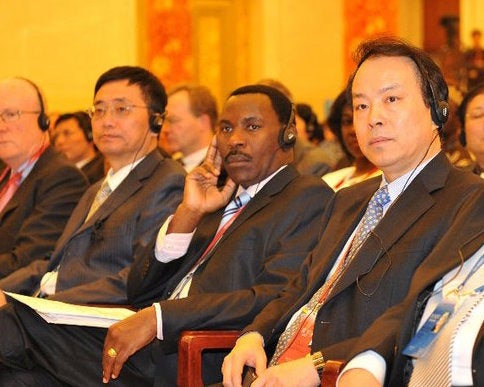Kenya's moral policeman boasts of getting US visa 'despite anti-LGBT, anti-atheist views'
'America here we come. . .TO GOD BE THE GLORY!'

Your support helps us to tell the story
From reproductive rights to climate change to Big Tech, The Independent is on the ground when the story is developing. Whether it's investigating the financials of Elon Musk's pro-Trump PAC or producing our latest documentary, 'The A Word', which shines a light on the American women fighting for reproductive rights, we know how important it is to parse out the facts from the messaging.
At such a critical moment in US history, we need reporters on the ground. Your donation allows us to keep sending journalists to speak to both sides of the story.
The Independent is trusted by Americans across the entire political spectrum. And unlike many other quality news outlets, we choose not to lock Americans out of our reporting and analysis with paywalls. We believe quality journalism should be available to everyone, paid for by those who can afford it.
Your support makes all the difference.A controversial official dubbed “Kenya’s moral policeman” has boasted on Facebook about being granted a diplomatic visa to enter the US, saying it confounds critics of his anti-LGBT, anti-atheist policies.
Ezekiel Mutua has been chief of the Kenya Film Classification Board for less than a year, yet has already become infamous for overreaching his mandate to ban TV adverts, parties organised on social media and even Google search results.
The official will be travelling to the US to attend the Web Rangers Summit in California, a Google-organised convention on online safety.
And there are some who questioned the search giant’s relationship with Mr Mutua, who has previously claimed in interviews to have a “memorandum of understanding” with Google to block certain search results appearing in Kenya.
Since his dramatic rise to public prominence, Mr Mutua has sparked controversy by forcing Coca-Cola to cut a scene involving a male-female kiss from one of its adverts, which he said “violated family values”.
A relatively chaste video promoting gay rights in Africa entitled Same Love was initially banned in its entirety from Google-owned YouTube, at Mr Mutua’s request, before it was eventually allowed to stay with a warning that it may contain “offensive” content.
And police stepped in when Mr Mutua ranted on his Facebook page about a “Girls Only” speed dating event that was due to take place in Nairobi, saying the use of “the so called colours of pride” on the event poster suggested it would be an “orgy… attended by lesbians”. The event did not take place.
Writing on Facebook alongside a photograph of his US visa, Mr Mutua said: “Because of my stand on moral values, including the banning of content promoting LGBT and Atheists culture in Kenya, someone wrote in a local daily that I will never get visa to the US.
“Well, I not only got it but it came on a Diplomatic Passport and I didn't even have to go to the Embassy for biometrics or pay the visa application fee.
“America here we come. . .TO GOD BE THE GLORY!”
Despite its name, the Kenya Film Classification Board has had its remit expanded to include material broadcast on TV during the watershed.
Mr Mutua's enchroachment into online material has widely been regarded as a step too far, however.
Asked in a May interview whether he was acting outside his mandate, Mr Mutua said: "If I have no mandate, somebody will take me to court and stop me. Kenyans are litigious, but they’re also very enlightened.
"When I came here toward the end of last year, I found adverts that were running at prime time, during the watershed period, contrary to the rules.
"I believe I’m doing the right thing," he said. "There are issues about morality and inappropriate content ... programmes we’re hearing on FM stations and seeing on TV, we must regulate to protect our children from indecent exposure."
Join our commenting forum
Join thought-provoking conversations, follow other Independent readers and see their replies
Comments